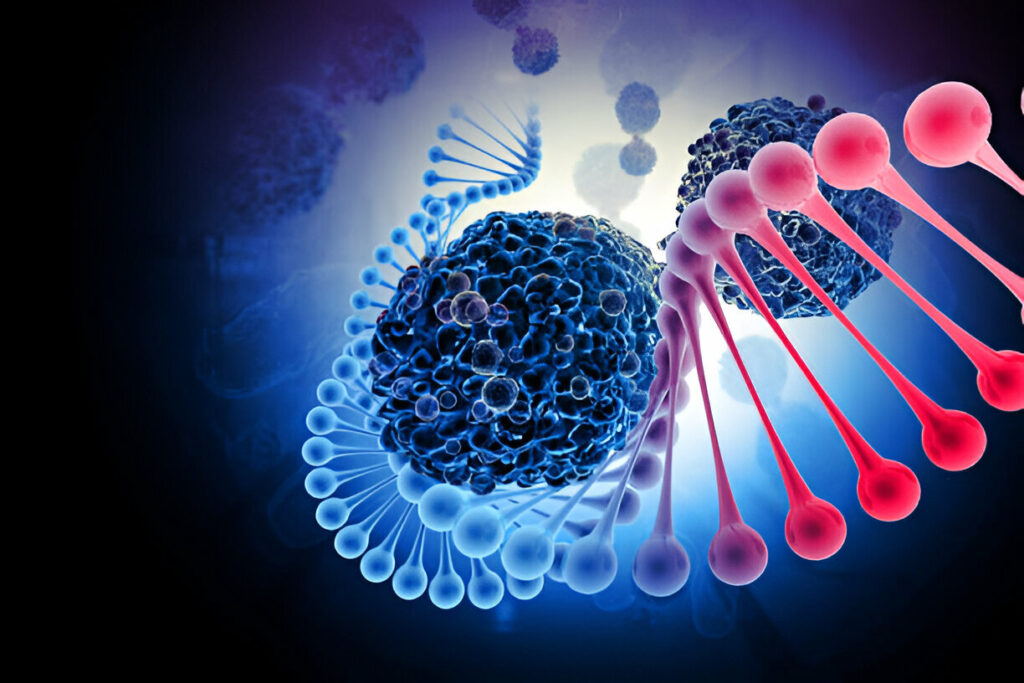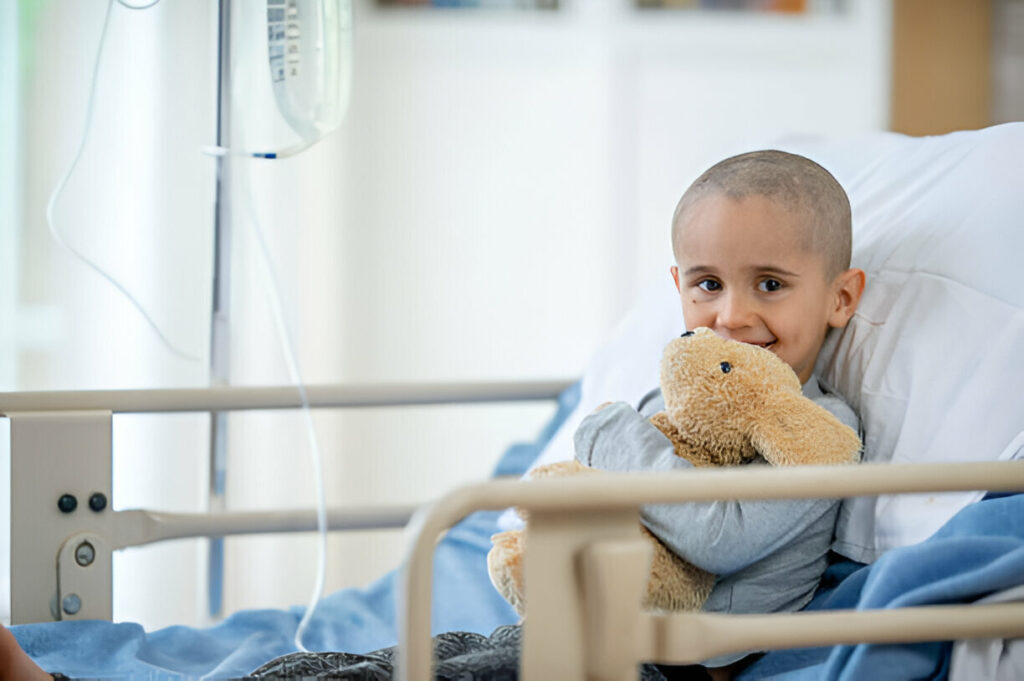
Table of Contents
Introduction
Receiving a Cancer Diagnosis Guide can be a life-altering moment, filled with uncertainty and fear. In the midst of grappling with the emotional impact of this news, it is crucial to arm oneself with knowledge and a plan of action. This comprehensive guide aims to provide individuals diagnosed with cancer in 2024 with a roadmap for navigating the complex landscape of treatment options, support systems, and self-care practices. By understanding the nuances of their diagnosis, exploring various treatment avenues, building a robust support network, and avoiding common pitfalls, individuals can empower themselves to face cancer with resilience and hope.
Educating Yourself about the Type and Stage of Cancer
When life gives you cancer, the first step is to do some research – not just on the best Netflix shows to binge watch during treatment, but also on the specifics of your diagnosis. Knowledge is power, and understanding the type and stage of your cancer can help you make informed decisions moving forward.
Seeking Second Opinions and Clarifications
Don’t be shy about getting a second opinion. It’s like online shopping but for your health – compare and contrast until you find the best fit. Clarify any doubts or questions you have with your healthcare team because, let’s be real, you’re the CEO of your own body, and you deserve all the information.

Treatment Options and Considerations
Exploring Conventional Treatments: Surgery, Chemotherapy, Radiation
When it comes to treatment options, think of yourself as a warrior about to enter battle. Conventional treatments like surgery, chemotherapy, and radiation may be the weapons in your arsenal. Consult with your healthcare team to understand the pros and cons of each approach.
Investigating Complementary and Alternative Therapies
If conventional treatments aren’t your jam, consider complementary and alternative therapies. From acupuncture to herbal supplements, there’s a whole world of options out there. Just remember to check with your doctor first – they’re like the gatekeepers to your body’s wellbeing.

Building a Support Network
Engaging with Family and Friends for Emotional Support
Cancer can feel like a solo journey, but it doesn’t have to be. Rally the troops – your family and friends are there to cheer you on, hold your hand, and pass you the tissues when needed. Let them be your emotional backbone through the ups and downs.
Connecting with Cancer Support Groups and Counseling Services
Sometimes, you need a squad that truly gets what you’re going through. That’s where cancer support groups and counseling services come in. It’s like finding your tribe in the midst of a storm – they understand the struggle, offer a shoulder to lean on, and maybe even crack a joke to lighten the mood.
Managing Stress and Anxiety During Cancer Treatment
Cancer treatment can feel like riding a rollercoaster blindfolded, but with a little mindfulness and self-care, you can keep your cool. Whether it’s meditation, yoga, or a good ol’ venting session, find what helps you de-stress and embrace it like your favorite comfort food.
Addressing Depression and Seeking Professional Help
Let’s face it – cancer can bring on a flood of emotions, including depression. If you’re feeling like the weight of the world is crushing you, don’t hesitate to reach out for professional help. Therapists and counselors are like emotional superheroes, ready to swoop in and help you navigate the tough stuff.
Lifestyle Changes and Self-Care Practices

Implementing Healthy Diet and Exercise Routines
When dealing with Cancer Diagnosis Guide, it’s crucial to focus on nourishing your body with a healthy diet and incorporating regular exercise. Think of your body as a high-performance car – you wouldn’t fuel it with junk and expect it to run smoothly. Opt for plenty of fruits, vegetables, whole grains, and lean proteins to support your immune system and overall well-being. And remember, exercise doesn’t have to mean hours at the gym; even a daily walk can do wonders for your physical and mental health.
Stress-Relief Techniques and Mindfulness Practices
Cancer can bring a whirlwind of emotions and stress into your life, but it’s essential to find healthy ways to cope. Explore stress-relief techniques like meditation, deep breathing exercises, or yoga to help you relax and stay grounded. Practicing mindfulness can also be beneficial, allowing you to stay present in the moment and cultivate a sense of calm amidst the storm.

Avoiding Common Pitfalls and Myths
Evaluating Alternative Cancer “Cures” and Remedies
In the vast sea of information out there, it’s easy to come across alternative cancer “cures” and remedies that promise miraculous results. However, it’s crucial to approach these with caution and consult with your healthcare team before making any major decisions. Remember, if something sounds too good to be true, it probably is.
Understanding and Addressing Misinformation
Navigating the world of cancer can be overwhelming, with misinformation lurking around every corner. Be wary of sensationalized headlines or hearsay and always seek out reliable sources of information. Your healthcare team, reputable medical websites, and support groups can be invaluable resources to help you separate fact from fiction.

Navigating Financial and Practical Concerns
Insurance Coverage and Financial Assistance Programs
Dealing with cancer is tough enough without adding financial stress to the mix. Take the time to understand your insurance coverage, including what treatments and services are included and any out-of-pocket costs you may face. Additionally, explore financial assistance programs that may be available to help alleviate some of the financial burden.
Planning for Work and Caregiving Responsibilities
Balancing work and caregiving responsibilities can be a juggling act, especially when facing a Cancer Diagnosis Guide. Talk to your employer about flexible work options or medical leave that may be available to you. Don’t hesitate to lean on friends, family, or professional caregivers for support during this challenging time. Remember, it’s okay to ask for help – you don’t have to do it all alone.
Conclusion
While a cancer diagnosis can be overwhelming, it is essential to remember that you are not alone in this journey. By educating yourself, seeking support, and prioritizing your physical and emotional well-being, you can navigate the challenges ahead with strength and determination. Remember to advocate for yourself, stay informed about your treatment options, and lean on your support network for guidance and encouragement. By taking proactive steps and avoiding misinformation, you can approach your cancer diagnosis with a sense of empowerment and resilience. Together, we can face the road ahead with courage and hope.
Frequently Asked Questions
1) What should I do if I receive a cancer diagnosis?
- Seek a Specialist: Consult with an oncologist or cancer specialist to discuss your diagnosis and treatment options.
- Gather Information: Ask your healthcare team about the type of cancer, its stage, and recommended treatments.
- Get Support: Reach out to loved ones, support groups, or counselors for emotional support and practical assistance.
2) How can I educate myself about the type and stage of cancer I have?
- Consult Reliable Sources: Use reputable medical websites like the American Cancer Society, National Cancer Institute, or information provided by your healthcare team.
- Ask Questions: Don’t hesitate to ask your doctors about specifics related to your diagnosis, such as prognosis, treatment options, and potential side effects.
3) Are there alternative therapies or treatments I should consider alongside conventional options?
- Discuss with Your Doctor: Talk openly with your healthcare team about any alternative therapies you’re considering.
- Consider Safety and Effectiveness: Ensure that any alternative therapies are safe and do not interfere with your conventional treatment plan.
- Clinical Trials: Ask about participation in clinical trials, which can offer access to new treatments and therapies.
4) How can I best support a loved one who has been diagnosed with cancer?
- Be Present: Listen actively and provide emotional support without judgment.
- Offer Practical Help: Assist with daily tasks, such as cooking, cleaning, or driving to appointments.
- Respect Their Wishes: Understand that everyone copes differently; respect their decisions regarding treatment and support.

